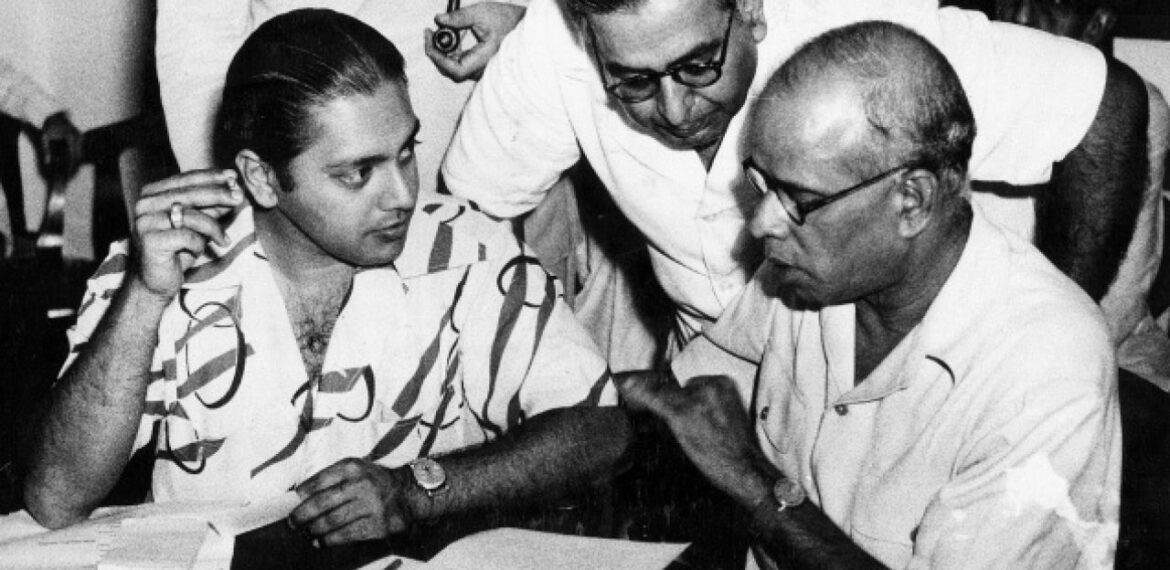The following excerpt has been taken from V.P. Menon’s ‘Indian Administration: Past and Present’, published in June 1958 by the Forum of Free Enterprise. The publication provides a comprehensive account of the Indian administration’s origins, from the days of the East India Company, and its evolution until the Planning Era. Menon stresses the expansive nature of the services, the role played by viceroys and governor generals, the exponential increase in the number of officers, and the challenges faced by the Indian administration over a span of three centuries. You can read the unabridged text here.
Vappala Pangunni Menon (30 September 1893 – 31 December 1965) was an Indian civil servant who served as Secretary to the Government of India in the Ministry of the States, under Sardar Patel.
The text highlighted in the musing remains highly relevant in today’s India, reflecting enduring challenges within public service.
Political interference in administration continues to undermine effective governance and demoralise public servants even today. Corruption runs rampant without any institutional responsibility for course correction, further keeping honest people away from the service and painting the entire machinery as ‘corrupt’. The perception of governors as political appointees rather than impartial overseers continues to impact their effectiveness. These are some of the problems underscored by Menon in the excerpt.
He concludes by emphasising the roots of Indian administration in the British era and the pressing need to overhaul the institution to make for a more decentralised system, one that does not overestimate the power of the Centre or fall prey to petty party politics.
Political Interference in Administration
Sardar Patel was always at pains to impress on his party men not to interfere in the administration; but interference goes on, differences being only a matter of degree, in all the States. The District officer gets no credit for good work. Often he is judged by reports from political busybodies in the district.
Public Perception and Corruption
We are being treated ad nauseam to communiques from various Governments on the action taken against “corrupt” officers. These statements leave an impression on the public mind that all officers are corrupt. By all means, I say, punish officers found guilty of corruption, but this sort of publicity only serves to undermine the prestige of the Services generally. In fact, corruption is not the monopoly of the Services. I remember the time when Sardar Patel ordered the prosecution of certain Ministers on a charge of corruption. The prosecutions were actually launched but were withdrawn after the death of Sardar. One of these very gentlemen is today an absconder in a non-bailable warrant case of misappropriation of public funds.
Election Expenses and Moral Standards
I do not blame the politician. Consider the amount which he has invested in order to get himself elected! Do not mistake me. I know as well as you that there are honourable exceptions. But the point I want to make is that the election expenses of parties and individual candidates under adult franchise are becoming prohibitive. Good candidates with limited means have no chance to fight elections. Money is playing a leading part and if we are not careful it will undermine our moral and ethical standards.
Role of the Governor
In this sorry state of affairs the head of a State could play an important role. But what the Ministries have done is to reduce the position of the Governor to that of a figurehead. It is always dangerous in an administration to create functionaries without responsibility, but the Congress are apparently quite unable to forget their past conflicts with Governors during the days of the British. The Governor is still distrusted and is generally ignorant of day-to-day administrative problems. The Governor, at any rate during his term of office, is supposed to be a non-party man, a position enabling him to ascertain not only the views of the Congress but also the reactions of other parties in the State.
Indian Administration: Roots and Reform
The basis of the existing administrative machinery is still that which was left to us by the British Government. The Central Government has embarked on various activities and is employing officers on those activities, for which they have no training. Congress has declared its ideology as “a socialistic pattern of society”, whatever that may mean. The officers must have some guidance on the Congress policy and how they are expected to implement it. Some of the provincial districts are too large for one man to manage, and if development activities are to be properly supervised, some of the districts should be reduced.
The Collector, on whom all development activities converge, cannot be expected single-handed to carry out his responsibilities. There should be appropriate agencies created for particular development work, e.g., the Grow More Food campaign. Ours is a vast country and we cannot govern it from Delhi. The Centre must be strong but consistent with that there should be decentralisation at all levels.
These and other considerations lead me to the conclusion that we must appoint forthwith a high-powered Commission to examine and make recommendations for, reorganising the existing administrative structure, both at the Centre and in the provinces. Our task should be to lay down the foundations of a good administration which would be outside party politics and serve whatever party comes into power.

